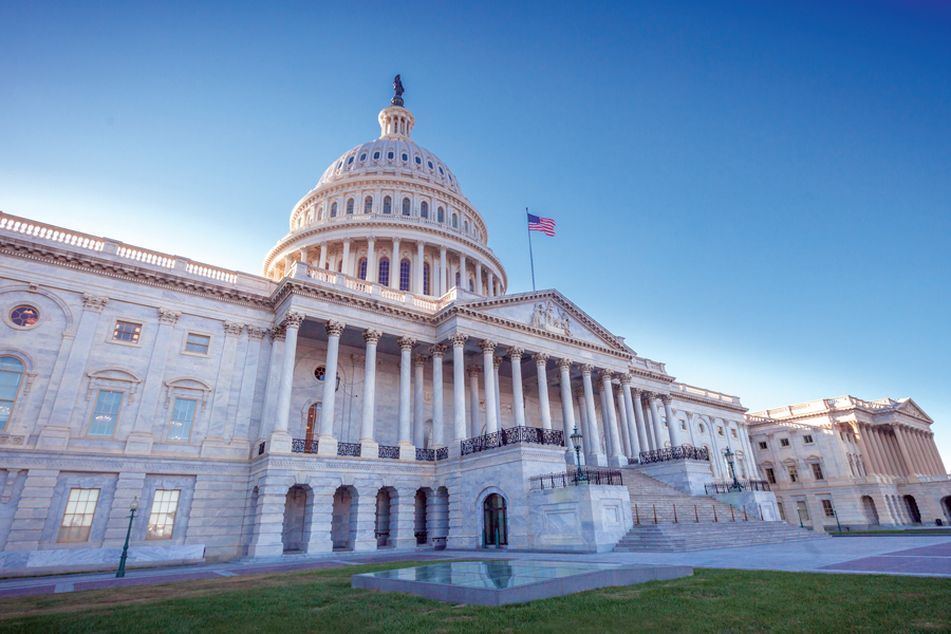House GOP tax package launches effort to pass reform legislation

The policies of most interest to financial advisors, such as expiring estate tax breaks, could come up later in the year in negotiations over a bipartisan bill.
A package of tax bills that will begin moving this week in the House of Representatives marks the start of a congressional tax reform effort, but the measures face steep partisan obstacles.
House Ways and Means Committee Chairman Jason Smith, R-Mo., Friday afternoon introduced three bills — the Tax Cuts for Working Families Act, the Small Business Jobs Act and the Build It in America Act — that form the foundation of the House GOP’s tax reform proposal.
The measure targeting families would allow some taxpayers to increase their standard deduction against adjusted gross income by up to $4,000 in the 2024 and 2025 tax years. Eligibility for the extra deduction on top of the current standard deduction depends on income level and other circumstances.
The small business bill would increase the threshold at which a business must report payments to a subcontractor from $600 to $5,000. Other provisions would modify the exclusion for a gain from a small business stock, increase limitations on depreciable assets and establish rural opportunity zones.
The Build It In America Act focuses on restoring tax breaks for research and development and reviving depreciation provisions that were included in a 2017 tax reform law but have since expired. Other provisions would repeal clean-energy tax breaks that were included in last year’s Inflation Reduction Act.
“The legislation … builds on successful tax policies enacted by Republicans that spurred higher economic growth — far more than projected — and sparked the fastest growth in real wages in 20 years,” Smith said in a statement.
The bills are scheduled for votes in the committee Tuesday that likely will break down along party lines.
“This stoops to a new low even for [Republicans]: retroactive corporate tax cuts, next-to-nothing for the most vulnerable children and families, and sneaking favors in for Big Oil,” Rep. Richard Neal, D-Mass. and ranking member of the House Ways and Means Committee, said in a statement.
The Republican majority in the House pretty much ensures the bills will get through the committee and likely be approved by the full House. The question is what happens to the legislation when it heads to the Senate, where Democrats are in control.
“I see this very much as an opening bid by House Republicans and Chairman Smith,” said Jorge Castro, a member at the law firm Miller & Chevalier and a former tax counsel for House and Senate lawmakers. “It’s very unlikely that a bill in this form will pass the Senate. But I think there are provisions in there that could get support in a Democratic Senate.”
The House bill essentially could be the start of negotiations with the Senate. On Friday, Sen. Ron Wyden, D-Ore. and chairman of the Senate Finance Committee, blasted the repeal of the energy tax incentives but left the door open to a compromise bill.
“As I’ve told Republicans repeatedly, Democrats are on board with fixing business tax incentives like R&D expensing as long as Congress also passes support for the most vulnerable children and families on the same scale,” Wyden said in a statement. “Democrats are interested in helping businesses and American families at the same time. Pairing tax cuts for businesses and families has been the bipartisan practice for several years in recent memory. I’m hopeful three’s enough common ground for the two sides to reach an agreement this year.”
Provisions from the 2017 tax law that dealt with estate tax breaks and other taxes that will expire in coming years may also emerge in negotiations on a bipartisan bill, Castro said.
“I suspect they’re likely going to be considered for the broader bipartisan package,” he said. “You’re going to see lobbying around those provisions at the end of the summer and in the fall.”
The recent bipartisan bill to lift the debt ceiling provides some hope that lawmakers can reach agreement on a tax bill, Castro said. “Perhaps that creates a formula for passing major tax legislation.”
Learn more about reprints and licensing for this article.








